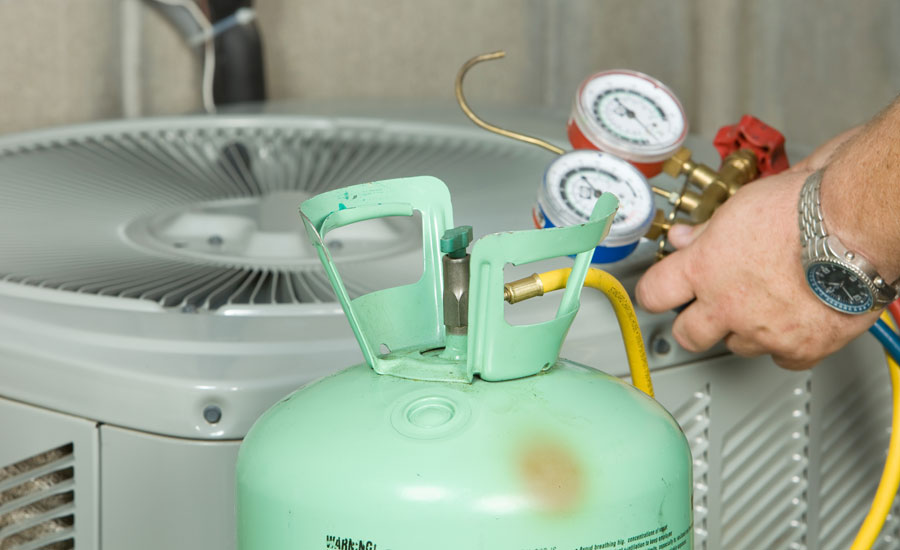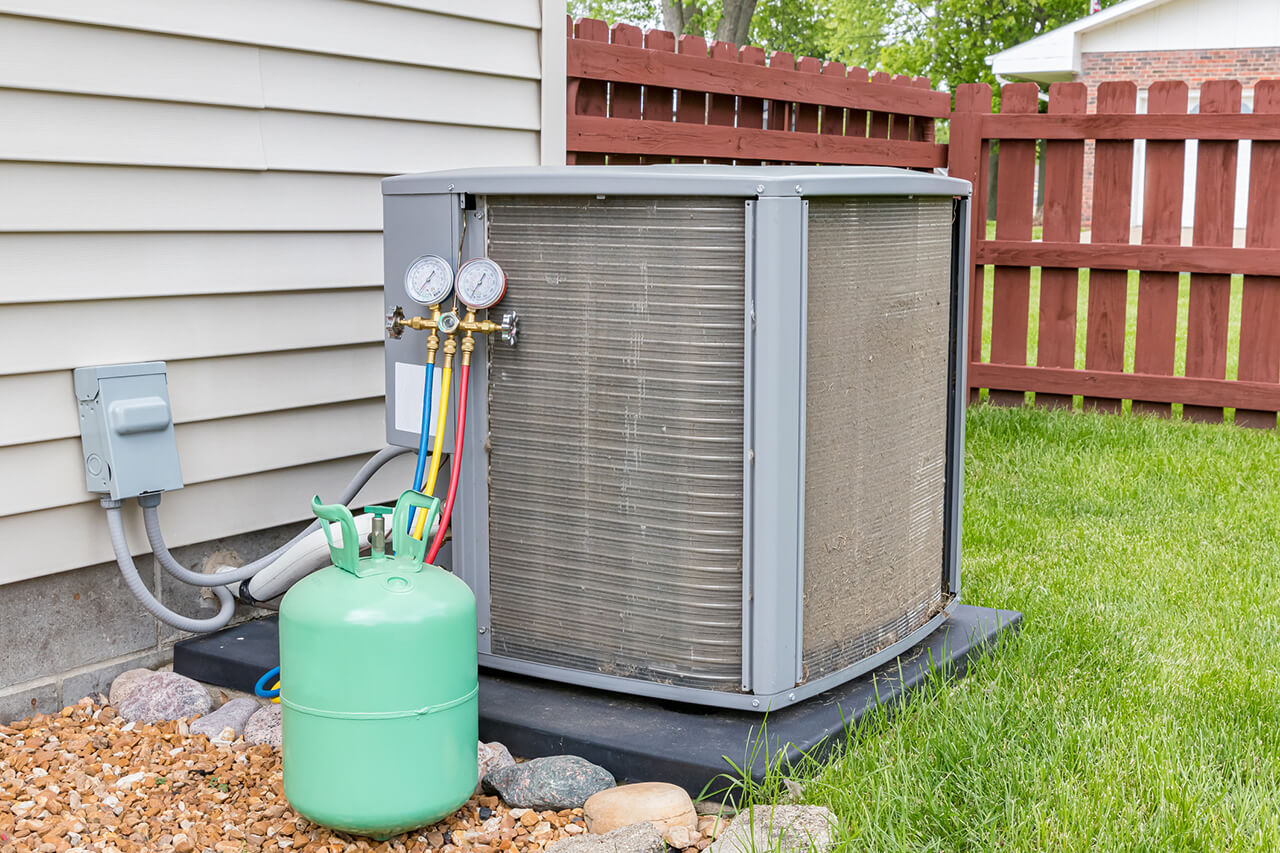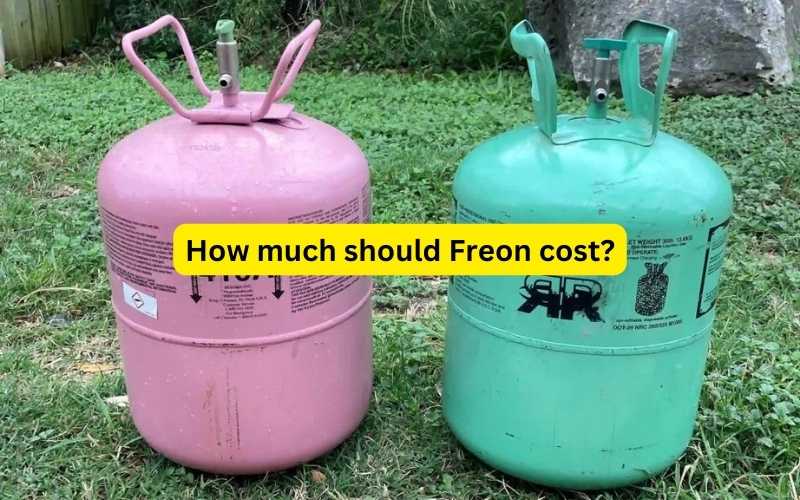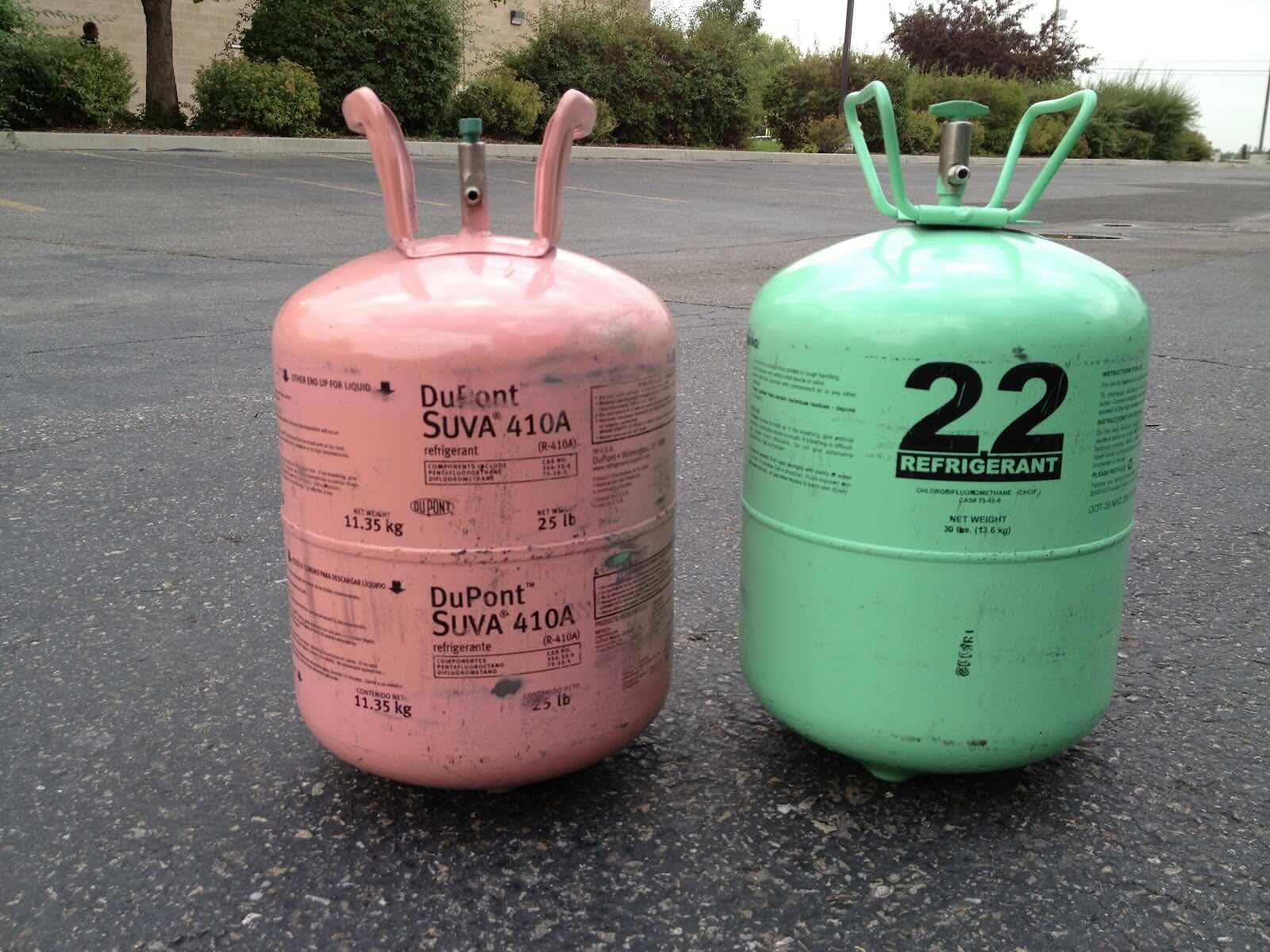How Much Is Freon For An Air Conditioner

Understanding the cost of Freon, or more accurately, refrigerant, for your air conditioner is crucial for maintaining a comfortable home and avoiding unexpected expenses. This guide breaks down the factors that influence the price, the types of refrigerants used, and what you should consider before scheduling a recharge.
What is Refrigerant and Why Does It Matter?
Think of refrigerant as the "blood" of your AC system, carrying heat from inside your home to the outside unit where it's released. Without enough refrigerant, your AC won't cool effectively, and your system will have to work harder, potentially leading to costly repairs or even a complete system failure.
Refrigerant isn't consumed like fuel. If your AC needs a recharge, it indicates a leak in the system. Simply adding more refrigerant without fixing the leak is a temporary fix and environmentally irresponsible.
Factors Affecting the Cost of Refrigerant
Several factors contribute to the overall cost of recharging your air conditioner with refrigerant:
1. Type of Refrigerant
This is the most significant cost factor. Different refrigerants have different prices, and older refrigerants like R-22 are being phased out, making them significantly more expensive and harder to find. Newer refrigerants, like R-410A, are more readily available and generally less expensive, although prices can still fluctuate.
R-22 (Freon): This was the standard refrigerant for many years. However, it's an ozone-depleting substance and is being phased out under the Montreal Protocol. As a result, R-22 is becoming increasingly expensive and difficult to source. If your system uses R-22 and needs a recharge, you might want to consider replacing your entire AC unit with a newer model that uses a more environmentally friendly refrigerant.
R-410A (Puron): This is the current standard refrigerant in most new AC systems. It's more environmentally friendly than R-22 and is more readily available. While generally less expensive than R-22, the price of R-410A can still vary depending on market conditions and demand.
R-32: An even newer refrigerant gaining popularity as an alternative to R-410A, offering improved energy efficiency and a lower global warming potential. While availability is still growing, it is expected to be more widely used in the future.
2. Amount of Refrigerant Needed
The amount of refrigerant your AC system needs depends on its size and type. A larger system will naturally require more refrigerant than a smaller one. The cost is typically calculated per pound of refrigerant.
Estimating the exact amount needed can be tricky without a professional inspection. Technicians use specialized equipment to determine the correct charge level based on your system's specifications.
3. Leak Detection and Repair
As mentioned earlier, a refrigerant leak is the reason your AC needs a recharge. The cost of finding and repairing the leak will be added to the overall bill. Leak detection can involve using specialized tools like electronic leak detectors or UV dyes to pinpoint the source of the leak.
The cost of the repair will depend on the location and complexity of the leak. Simple leaks, like a loose fitting, might be relatively inexpensive to fix. However, more complex leaks, such as a corroded coil, can be more costly to repair, potentially requiring replacement of the component.
4. Labor Costs
HVAC technicians charge hourly rates for their labor. The time it takes to diagnose the problem, locate and repair the leak, and recharge the system will all factor into the labor cost. Experienced and certified technicians typically charge higher rates, but their expertise can save you money in the long run by ensuring the job is done correctly.
5. Location
Prices for refrigerant and labor can vary depending on your geographic location. Areas with a higher cost of living or a greater demand for HVAC services may have higher prices.
6. Contractor
Different HVAC contractors have different pricing structures. Some may offer lower hourly rates but charge more for parts, while others may have higher hourly rates but offer discounts on refrigerant. It's always a good idea to get quotes from multiple contractors to compare prices and services.
Estimating the Cost: A Range
Providing a precise cost estimate is difficult without knowing the specific details of your AC system and the extent of the problem. However, here's a general range to give you an idea:
- R-22 (Freon): Due to its phase-out, expect to pay a premium. Prices can range from $50 to $150 or more per pound. Keep in mind the actual price will fluctuate and availability may be limited. It's generally recommended to replace your system if it requires R-22.
- R-410A (Puron): Typically ranges from $20 to $40 per pound. This is the most common refrigerant in newer systems.
- Leak Detection: Can range from $150 to $500 or more, depending on the complexity of the leak and the methods used for detection.
- Labor: HVAC technicians typically charge $75 to $150 per hour. The total labor cost will depend on the time it takes to diagnose the problem, repair the leak, and recharge the system.
Therefore, a simple recharge with R-410A, including a small leak repair, might cost anywhere from $300 to $800. A more complex repair involving a larger leak or the need to replace a component could easily exceed $1000.
The Importance of Professional Service
While you might be tempted to try recharging your AC system yourself to save money, it's strongly discouraged. Handling refrigerants requires specialized equipment and knowledge. Incorrectly charging the system can damage your AC, void your warranty, and pose a safety risk. Additionally, releasing refrigerant into the atmosphere is illegal and harmful to the environment.
Hiring a qualified and licensed HVAC technician is essential for several reasons:
- Proper Diagnosis: A technician can accurately diagnose the problem and determine the root cause of the leak.
- Safe Handling: Technicians are trained to handle refrigerants safely and responsibly.
- Correct Charge: They have the equipment and expertise to ensure the system is charged with the correct amount of refrigerant.
- Leak Repair: They can properly repair the leak to prevent future problems.
- EPA Compliance: Licensed technicians are certified to handle refrigerants according to EPA regulations.
When to Consider Replacing Your AC System
If your AC system is old (10-15 years or more) or uses R-22 refrigerant, you might want to consider replacing it rather than continuing to repair it. Frequent refrigerant leaks, high energy bills, and the increasing cost of R-22 are all signs that it might be time for a new system.
Newer AC systems are more energy-efficient and use environmentally friendly refrigerants like R-410A or R-32. While the upfront cost of a new system is higher, you'll save money in the long run through lower energy bills and reduced repair costs. Plus, you'll be contributing to a cleaner environment.
Questions to Ask Your HVAC Technician
Before hiring an HVAC technician to recharge your AC system, be sure to ask these questions:
- Are you licensed and insured?
- Do you have experience working with my type of AC system?
- What type of refrigerant does my system use?
- How will you locate the leak?
- What is your hourly rate?
- What is the cost per pound of refrigerant?
- Do you offer a warranty on your work?
- Can you provide a written estimate before starting the work?
- What are my options if the repair is too costly?
Getting Multiple Quotes
Always get quotes from multiple HVAC contractors before making a decision. This will allow you to compare prices, services, and warranties. Be sure to ask each contractor the same questions so you can make an informed comparison. Don't automatically choose the lowest price; consider the contractor's experience, reputation, and customer reviews as well.
Conclusion
The cost of Freon (refrigerant) for your air conditioner depends on several factors, including the type of refrigerant, the amount needed, leak detection and repair costs, labor costs, and location. While it's tempting to try to save money by recharging the system yourself, it's crucial to hire a qualified and licensed HVAC technician to ensure the job is done safely and correctly. If your system is old or uses R-22 refrigerant, consider replacing it with a newer, more energy-efficient model. By understanding these factors and asking the right questions, you can make an informed decision and keep your AC system running smoothly for years to come.










